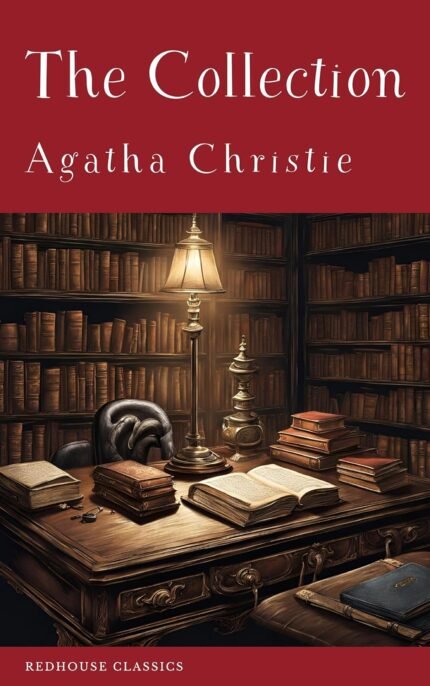
Price: ₹0.00
(as of Jan 14, 2025 20:44:24 UTC – Details)
Who we are…how we think…what we do… Here are insight and inspiration from 50 key books, including works by Sigmund Freud, Malcolm Gladwell, Daniel Goleman, Karen Horney, Carl Jung, Alfred Kinsey, R.D. Laing, Jean Piaget, Martin Seligman, Oliver Sacks, Gail Sheehy, and BF Skinner.
Spanning hundreds of ideas developed over the past century, 50 Psychology Classics also explores important contemporary writings, such as Gladwell’s Blink and Seligman’s Authentic Happiness. Listeners will gain insight into the scientific research of leading contemporary psychologists, psychiatrists, and neurologists. And they’ll discover why we think and act the way we do from the landmark best sellers of psychology.
With insightful commentaries on each classic, biographical information on the authors, plus a guide to further key titles, 50 Psychology Classics provides a unique overview of this fascinating subject.
Customers say
Customers find the book informative and interesting for those interested in psychology. They describe it as a good read that covers many psychological ideas in a concise manner.
AI-generated from the text of customer reviews




























diwakar –
One of the best books
If you really want to know the foundation of psychology, you should go for this book!!
Anirban –
Must read
Good, short and informative
Prashant –
Amazing book
Must read even if you are not into psychology but have interest for understanding human mind and it’s working
Niranjana Mohanan –
Splendid book
It is a wonderful book for anyone interested in psychology. The book was received in perfect packaging and thus no damages on the book cover. The print is a bit small but is definitely worth the purchase.
Prasad –
Nice book on psychology
Good collection
Anusha –
Many psychological ideas in single booK
Author has curated 50 psychological classics. By going through the book, one can get bird’s eye view of various psychological ideas which enable readers to pick up the interested one for detail study.Some of the ideas are:1. Are we the product of nature – biological makeup or nurture – environment.2. Are we vulnerable to influence by others.3. What is logo therapy and how to find meaning in life even in worst life situation.4. Is dreams are just reflection of subconscious mind.5. Do we really know what makes us happy6. Can a decision be made in a blink through well developed intuition and if so , whether details analysis of given situation is a futile exercise.7. Is possessing emotional intelligence like resilience, initiative , optimism, adaptability to change, empathy towards other, a real ingredient for success rather than raw intelligence.8. What are the human primary motives.9. Do free will exist or we are all conditioned animals.10. How to deal with inner conflicts.11. what are the qualities make up for a self actualizer from the rest.12. Why there is too much of obedience to the authority – which pushes even moral beings even to do cruel act.13. How to condition reflexes through unconscious learning which pave way for behavior formation.14. What make some kind of people even to die for a cause.15. How bad emotions are only a series of negative thought and what can be done to curtail harmful thoughts .Thanks
Amazon Customer –
Good read
Good to read one book instead of 50 books.
K Krishna –
A good book to read for a lay man
A good essential book to read
Lorraine S. –
This is a wonderful book for anyone interested in the psychology field, whether as a layperson or a student. It provides a list of the most important writings in the field, with a detailed description of each and an explanation of why the writing is of significance. I am quickly finding it to be an indispensable resource.
Arildo –
If you want a guide to study and understand better Psychology subjects this is the one! Helping me a lot! 🙂
Jayne P. Bowers –
As a psychology instructor, I found 50 Psychology Classics by Tom Butler-Bowdon to be a well-written, informative treasure trove of information about the theories, concepts, and lives of some of psychology’s greatest. In fact, for weeks I’ve been sharing so many tidbits of information (like Erik Erikson changing his name after he became a United States citizen) with my students that many are probably getting tired of hearing about this awesome book. As expected, the BIG names such as Freud, Skinner, Watson, Erikson, and Maslow are included, and so were some lesser known people whose work I admire. Howard Gardner and his theory of multiple intelligences, Gail Sheehy and her passages of adult life, and Daniel Coleman and his concept of emotional intelligence are but a few of the psychologists included.My personal favorites include Fritz Perls, noted Gestalt psychologist of yesteryear, and Daniel Seligman, cognitive psychologist. I had forgotten about Perls and his original way of thinking and of dealing with patients. His admonition to “lose your mind and come to your senses” is a concept that I’ve thought about many times since reading this passage. Perls felt that people think too much, and that with their tendency to overanalyze and fret about things, they fail to truly experience life and its richness. The summary of how Seligman gained insight into his grouchiness at age 50 was quite interesting, and I was fascinated by how he turned this insight into research about the cognitive elements of happiness.Well-organized and easy to read, each of the 50 classics begins with a few famous quotes from the psychologist before proceeding to “in a nutshell,” an overview of the psychologist’s work, and a brief biographical sketch. It’s reassuring to see this reference book on my shelf, and I’m thinking of buying some for gifts. Yes, it’s that good.
Ms Cyprah –
What can one say about this book without it sounding over-the-top and far fetched? For me, personally, 50 Psychology Classics ranks among a few books that I can undoubtedly say changed my life and direction at crucial times in my career. The author, Tom Butler-Bowdon, has this enviable skill of grasping the content of the books he reviews and relating their essence in two or three pages with impressive effect.He reviews 50, known and unknown, psychology classics and also suggests another 50 at the back of the book, 100 in all, for the reader’s benefit. His crisp, concise, often humorous, and interesting summaries are very engaging. In most cases, they save the reader having to go and buy individual copies, especially if one has heard of a book being reviewed and wanted to check its content before buying. It is also perfect for the reader who is interested in psychology, or allied fields, and wants an introduction to the key authors and pioneers within it.Thanks to this book, I learnt which area of psychology I was most interested in, which authors I found most appealing and how I could direct my own life to develop my interests further. I remember reading a couple of psychology books at the time and wondered which ones I could read next. Quite surprisingly, I came across 50 classics a few days later and my question was answered much more than I imagined. This is a remarkable reference book with a difference, easy to read and full of little gems, deserving of a space on any intelligent shelf.
SeekingGood –
Very good!